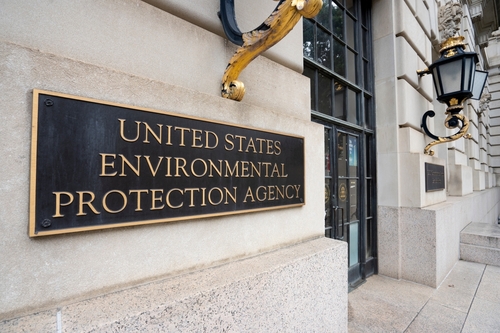
The Pennsylvania Chamber of Business and Industry and seven other business groups this week called on the U.S. Environmental Protection Agency (EPA) to streamline its permitting backlog for carbon storage projects.
“As organizations representing tens of thousands of businesses in our states, we’re continuously hearing that our members want to innovate and invest in carbon capture and sequestration [CCS],” said Luke Bernstein, president and CEO of the PA Chamber. “But that can’t happen unless the permitting backlog at the EPA is addressed.”
Bernstein said the chamber and its colleagues appreciate the Biden administration’s public support and federal funding commitments to bolster the CCS industry, but added that now is the time “to put those words into action, approve primacy applications for Class VI injection wells, and deliver the economic and emission reduction opportunities that will come with it.”
The PA Chamber, along with groups representing a cross-section of industry in Illinois, New Mexico, Pennsylvania, Texas, and West Virginia, said they’re joining “a growing, bipartisan chorus of stakeholders and policymakers who are calling attention to this lack of movement that is obstructing needed investments in CCS,” according to a March 14 letter the groups sent to EPA Administrator Michael Regan.
In addition to the PA Chamber, the letter is signed by representatives of the Pennsylvania Chemical Industry Council (PCIC); the Chemical Industry Council of Illinois; the Illinois Manufacturers’ Association; the New Mexico Chamber of Commerce; the Texas Economic Development Council; the Greater Houston Partnership; and the West Virginia Manufacturers Association.
The groups specifically urged the EPA to address delays in processing state primacy applications for Class VI injection wells — also known as CO2 injection wells.
They pointed out that states have demonstrated for decades how important primacy over all classes of injection wells is for faster permitting and for ensuring that the operations adhere to each state’s unique environmental standards.
“Many states have regulations that far exceed the standards EPA has set,” they wrote. “Granting states primacy to approve Class VI injection wells would expedite and streamline the permitting process, so that the United States does not fall behind on this [CCS] technology that is critical to major emissions reductions across multiple sectors.”
And as the groups collectively pursue billions of dollars in new investments in CCS, they noted that their members are increasingly concerned about uncertain permitting timelines for Class VI injection wells and the lengthy process for states to secure primacy.
The PA Chamber and other groups called on the EPA to set a reasonable timeline for primacy and permitting decisions that, in turn, would provide certainty and predictability to businesses and producers that want to make definitive investments in CCS technology, according to their letter.
“Advancing investments in hydrogen and carbon capture technology is an opportunity for industry and regulators to find common ground to achieve a mutually desired energy future,” added Steven Kratz, president of PCIC, in a separate statement.
The groups’ letter is among several other similar calls that have been made to the EPA about this topic, including from Louisiana business groups and trade organizations, which earlier this month questioned the EPA about their state’s primacy application submitted more than 500 days ago.
In fact, four states currently have pending primacy applications with at least eight more expressing interest in applying, according to the letter from the PA Chamber and its colleagues, and more than 30 proposed Class VI permits remain under review by EPA, some of which have been in the queue for years.
They also pointed out that zero permits have been granted since passage of the Inflation Reduction Act or the 2021 Infrastructure Act, which established $50 million to assist states in the primacy process.
“Without immediate improvement, the current Class VI permitting timeline will continue to serve as a barrier to meeting emission reduction goals — including the ones the Biden administration has set — while discouraging much-needed infrastructure investments across the country,” they wrote.